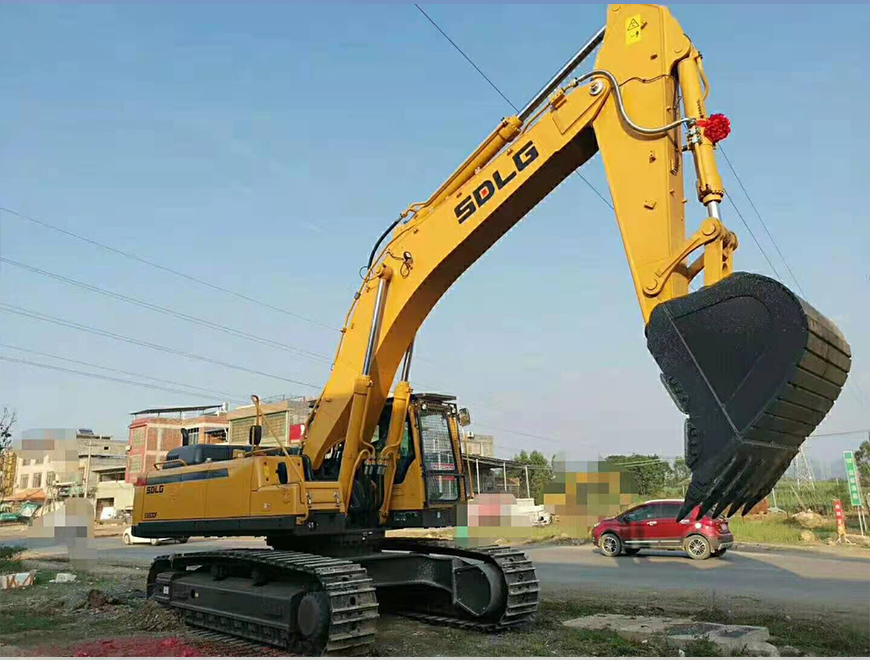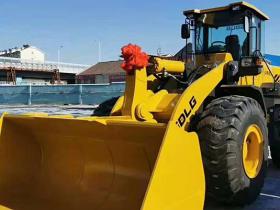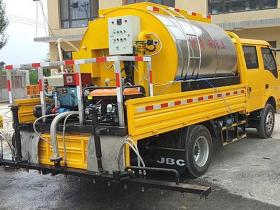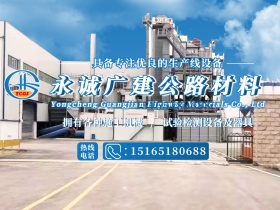公司新闻
装载机的原理及分类特点
装载机是一种广泛用于公路、铁路、建筑、水电、港口、矿山等建设工程的土石方施工机械,它主要用于铲装土壤、砂石、石灰、煤炭等散状物料,也可对矿石、硬土等作轻度铲挖作业。换装不同的辅助工作装置还可进行推土、起重和其他物料如木材的装卸作业。
A loader is a type of earthwork construction machinery widely used in construction projects such as highways, railways, buildings, hydropower, ports, and mines. It is mainly used to shovel and load loose materials such as soil, sand and gravel, lime, coal, etc. It can also perform light excavation operations on ores, hard soil, etc. Replacing with different auxiliary work devices can also be used for soil pushing, lifting, and loading and unloading of other materials such as wood.
装载机可以分为轮胎式装载机、履带式装载机等,具有作业速度快,机动性好,操作轻便等优点,因而发展很快,成为土石方施工中的主要机械。
Loaders can be divided into tire type loaders, track type loaders, etc., which have the advantages of fast operation speed, good mobility, and easy operation. Therefore, they have developed rapidly and become the main machinery in earthwork construction.
装载机作为一个有机整体,其性能的优劣不仅与工作装置机械零部件性能有关,还与液压系统、控制系统性能有关。动力系统:装载机原动力一般由柴油机提供,柴油机具有工作可靠、功率特性曲线硬、燃油经济等特点,符合装载机工作条件恶劣,负载多变的要求。机械系统:主要包括行走装置、转向机构和工作装置。液压系统:该系统的功能是把发动机的机械能以燃油为介质,利用油泵转变为液压能,再传送给油缸、油马达等转变为机械能。控制系统:控制系统是对发动机、液压泵、多路换向阀和执行元件进行控制的系统。液压控制驱动机构是在液压控制系统中,将微小功率的电能或机械能转换为强大功率的液压能和机械能的装置。它由液压功率放大元件、液压执行元件和负载组成,是液压系统中进行静态和动态分析的核心。
As an organic whole, the performance of a loader is not only related to the mechanical components of the working device, but also to the performance of the hydraulic system and control system. Power system: The main power of a loader is generally provided by a diesel engine, which has the characteristics of reliable operation, hard power characteristic curve, fuel economy, etc., and meets the requirements of harsh working conditions and variable loads of loaders. Mechanical system: mainly including walking device, steering mechanism, and working device. Hydraulic system: The function of this system is to convert the mechanical energy of the engine into hydraulic energy using fuel as the medium, and then transmit it to cylinders, oil motors, etc. to convert it into mechanical energy. Control system: The control system is a system that controls the engine, hydraulic pump, multiple directional valve, and actuator components. Hydraulic control drive mechanism is a device in hydraulic control systems that converts small power electrical or mechanical energy into powerful hydraulic and mechanical energy. It consists of hydraulic power amplifier components, hydraulic actuator components, and loads, and is the core of static and dynamic analysis in hydraulic systems.

装载机的分类:
Classification of loaders:
1、按行走方式分:
1. Classified by walking mode:
(1)履带式:接地比压低,牵引力大,但行驶速度慢,转移不灵活。
(1) Crawler type: low ground to ground ratio, high traction, but slow driving speed and inflexible transfer.
(2)轮胎式:行驶速度快,机动灵活,可在城市道路行驶,使用方便。
(2) Tire type: fast driving speed, flexible mobility, can be used on urban roads, convenient to use.
2、按机身结构分:
2. Classified by body structure:
(1)刚性结构:转弯半径大,但行驶速度快。
(1) Rigid structure: With a large turning radius but fast driving speed.
(2)铰接结构:转弯半径小,可在狭窄地方工作。
(2) Articulated structure: With a small turning radius, it can work in narrow areas.
3、按回转方式分:
3. Classified by rotation method:
(1)全回转:可在狭窄场地作业,卸料时对机械停放位置无严格要求。
(1) Full rotation: can operate in narrow areas, and there are no strict requirements for the parking position of machinery during unloading.
(2)90°回转:可在半圆范围内任意位置卸料,在狭窄场地也可发挥作用。
(2) 90 ° rotation: can unload materials at any position within a semi-circular range, and can also play a role in narrow areas.
(3)非回转式:要求作业场地较宽。
(3) Non rotating: requires a wider work area.
4、按传动方式分:
4. Classified by transmission mode:
(1)机械传动:牵引力不能随外载荷变化而自动变化,使用不方便。
(1) Mechanical transmission: The traction force cannot automatically change with external load changes, making it inconvenient to use.
(2)液力机械传动:牵引力和车速变化范围大,随着外阻力的增加,车速可自动下降。液力机械传动可减少冲击,减少动载荷,保护机器。
(2) Hydraulic mechanical transmission: The range of changes in traction and vehicle speed is large, and as the external resistance increases, the vehicle speed can automatically decrease. Hydraulic mechanical transmission can reduce impact, reduce dynamic load, and protect the machine.
(3)液压传动:可充分利用发动机功率,降低燃油消耗,提高生产率,但车速变化范围窄,车速偏低。
(3) Hydraulic transmission: It can fully utilize engine power, reduce fuel consumption, and improve productivity, but the range of speed changes is narrow and the speed is low.
















































 公司地址:济南市商河县贾庄镇民营经济创业园
公司地址:济南市商河县贾庄镇民营经济创业园 公司名称:永诚广建公路材料(山东)有限公司
公司名称:永诚广建公路材料(山东)有限公司  备案号:
备案号: